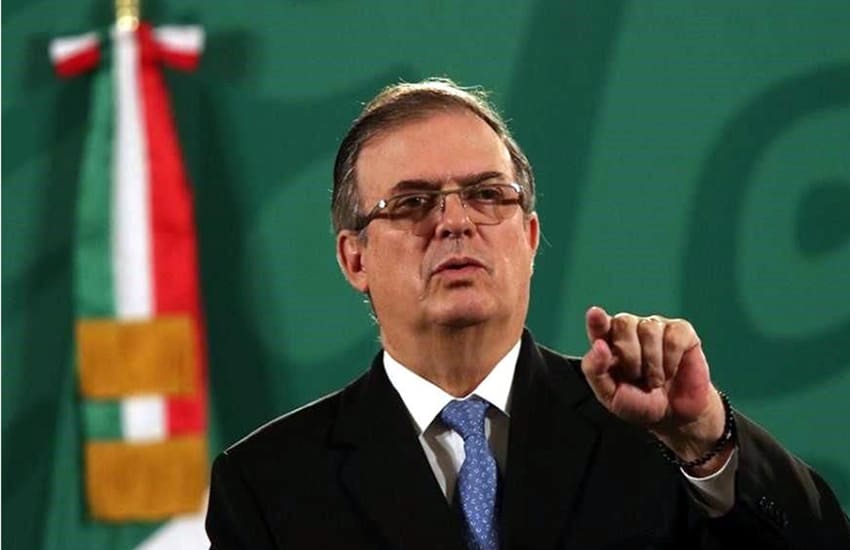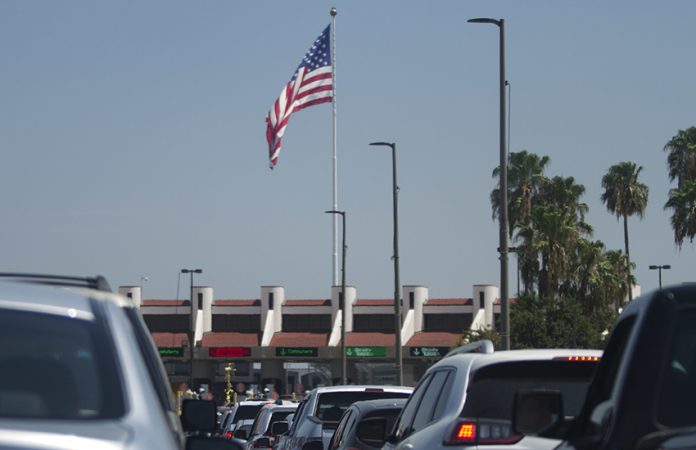The restriction on nonessential land travel into the United States has been extended for another month, meaning that many Mexicans will be unable to cross the border until at least June 21.
United States Customs and Border Protection announced Monday that the ban on nonessential travel will remain in place until at least 11:59 p.m. on June 20.
United States citizens returning home and individuals traveling for medical or educational purposes or to conduct essential work in the U.S. are not affected.
The border has been closed to Mexicans wishing to travel to the U.S. for nonessential purposes such as tourism and shopping since March 2020 due to the coronavirus pandemic. But the reverse is true for U.S. citizens who wish to travel to some northern states.
Mexico last month opened up nonessential land travel from the U.S. via border crossings in states that are low-risk green or medium-risk yellow on the federal government’s coronavirus stoplight map.
Five of Mexico’s six northern border states are either green or yellow on the current map, the only exception being Chihuahua, which is high-risk orange.

Foreign Minister Marcelo Ebrard said Tuesday that United States authorities have decided not to reopen the border to nonessential travel until more people are vaccinated against Covid-19 in the U.S.
“They took the decision to extend the restrictions because they haven’t finished vaccination in the whole [border] area,” he told reporters at President López Obrador’s morning press conference.
“… Their judgment is to not open or lift the restrictions until the vaccination [process] ends; they’re already close to achieving it, in any case,” Ebrard said.
“… I would say that we’re on the way to being able to regularize the situation. … The vaccination reach they have, and which we are starting to have, would make it advisable to lift the restrictions soon,” the foreign minister said.
He said the federal government is confident that the United States will reach its goal of vaccinating more than 60% of the population by summer. “I don’t know the exact date, but we would like it to be soon,” Ebrard added.
The United States’ announcement that the ban on nonessential travel would remain in place comes amid growing impatience for the restrictions to be lifted.
The Texas Border Coalition, which represents cities from Brownsville to El Paso, wrote to United States Secretary of Homeland Security Alejandro Mayorkas last Friday to urge the U.S. government to reopen land ports of entry to nonessential travelers.
“We believe it is time … to reopen our borders and allow for cross-border travelers to enter our communities. Common-sense measures such as personal protective equipment, a negative Covid-19 test, and proof of vaccination can make cross-border travel safe for our citizens, Customs and Border Protection personnel and travelers alike,” the letter said.
“… The ‘temporary’ limits have now lasted for more than 14 months. These restrictions have heavily paralyzed and devastated the economics of our border businesses and communities.”
Signed by several elected officials as well as business and community leaders, the letter noted that before the pandemic the economy of Texas border communities “relied on the influx of daily travelers from Mexico who acquire goods and services in the United States.”
“However, the current border travel restrictions have dramatically limited these travelers and the critical cross-border exchange of business and commerce, leaving local border economies shattered. The year-long exclusion of these customers is harming our local economies, especially our retail, dining, and hospitality sectors. Severely restricting cross-border travel in this way is not an effective long-term policy and causes disproportionate economic impact to border communities,” the letter added.
Henry Cuellar, a U.S. representative for Texas, also wrote to Secretary Mayorkas, asserting that “we must find a balance between the health of the individual and the health of the local economy.”
Source: Reforma (sp), Rio Grande Guardian (en)
